Two Life-Changing Questions I Learned 20 Years Ago on the Frontlines of Hurricane Katrina
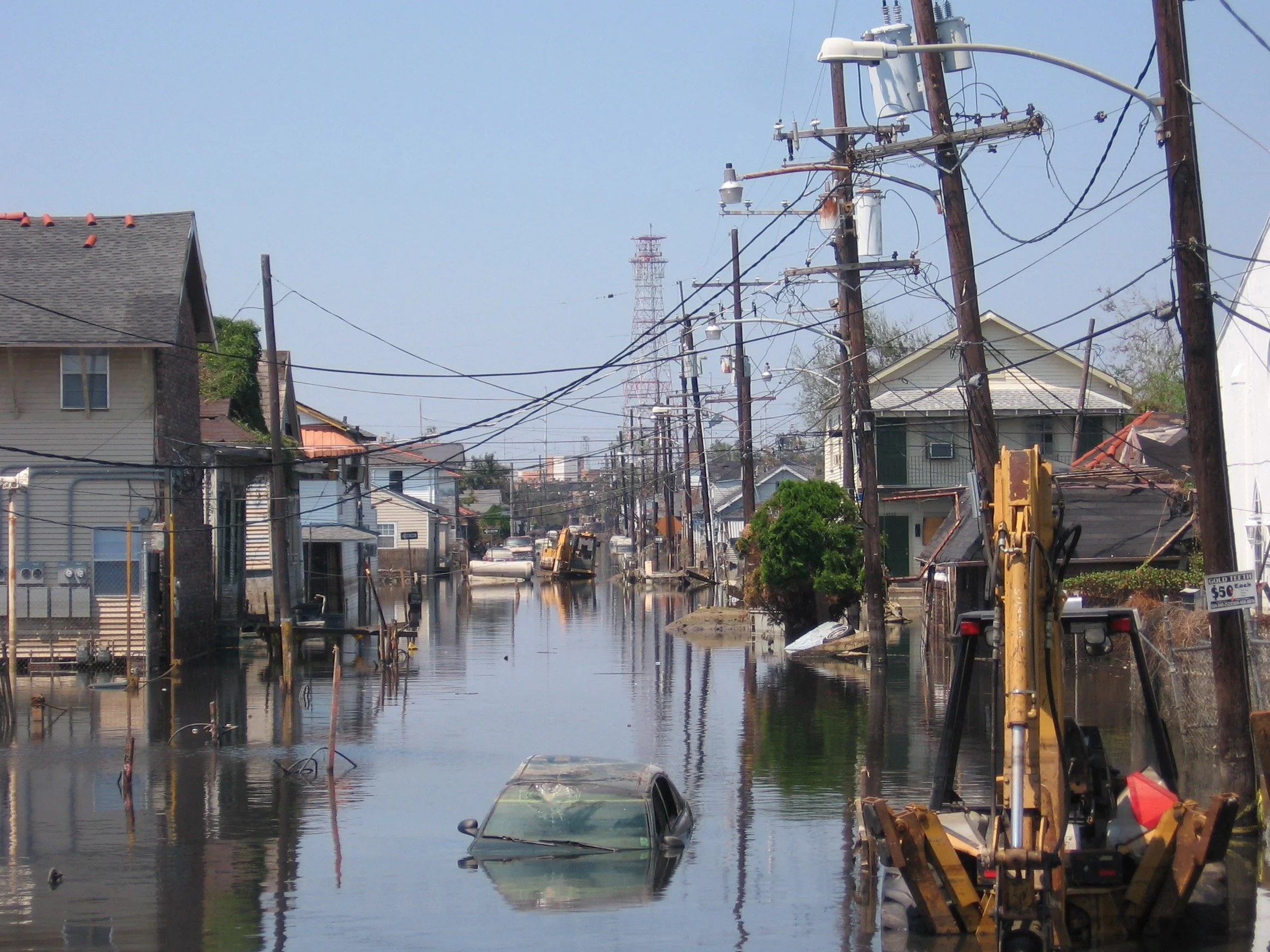
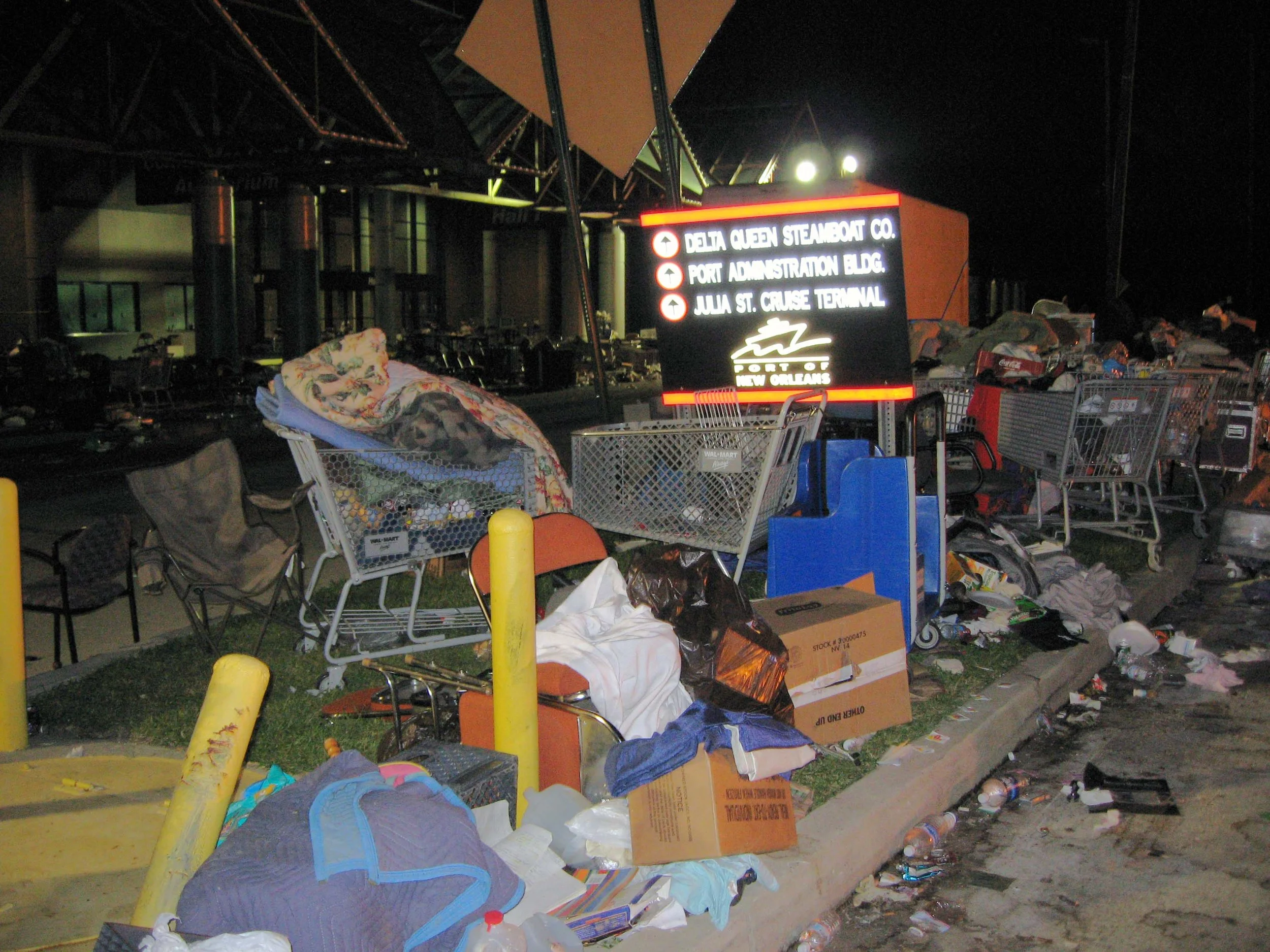
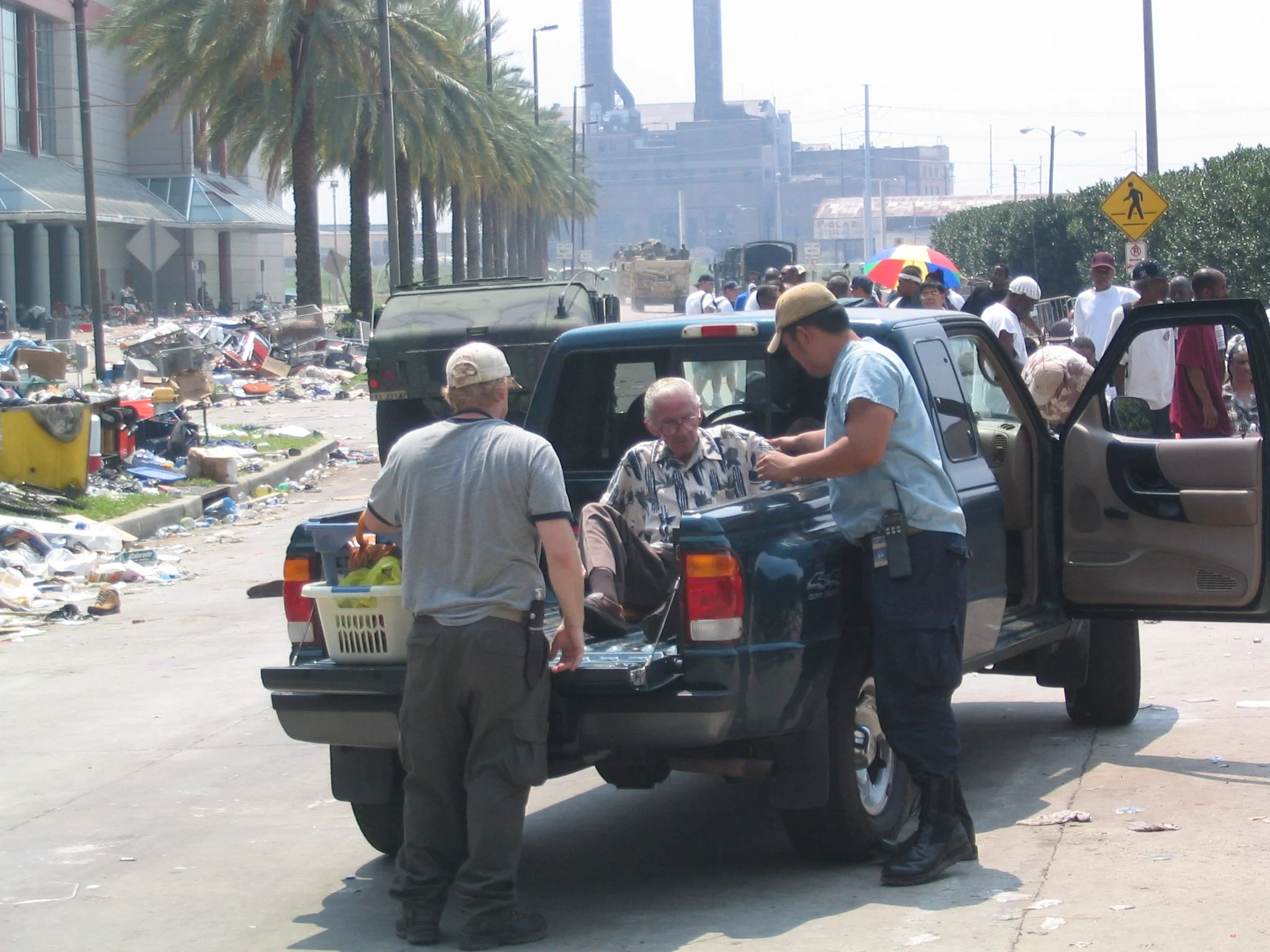
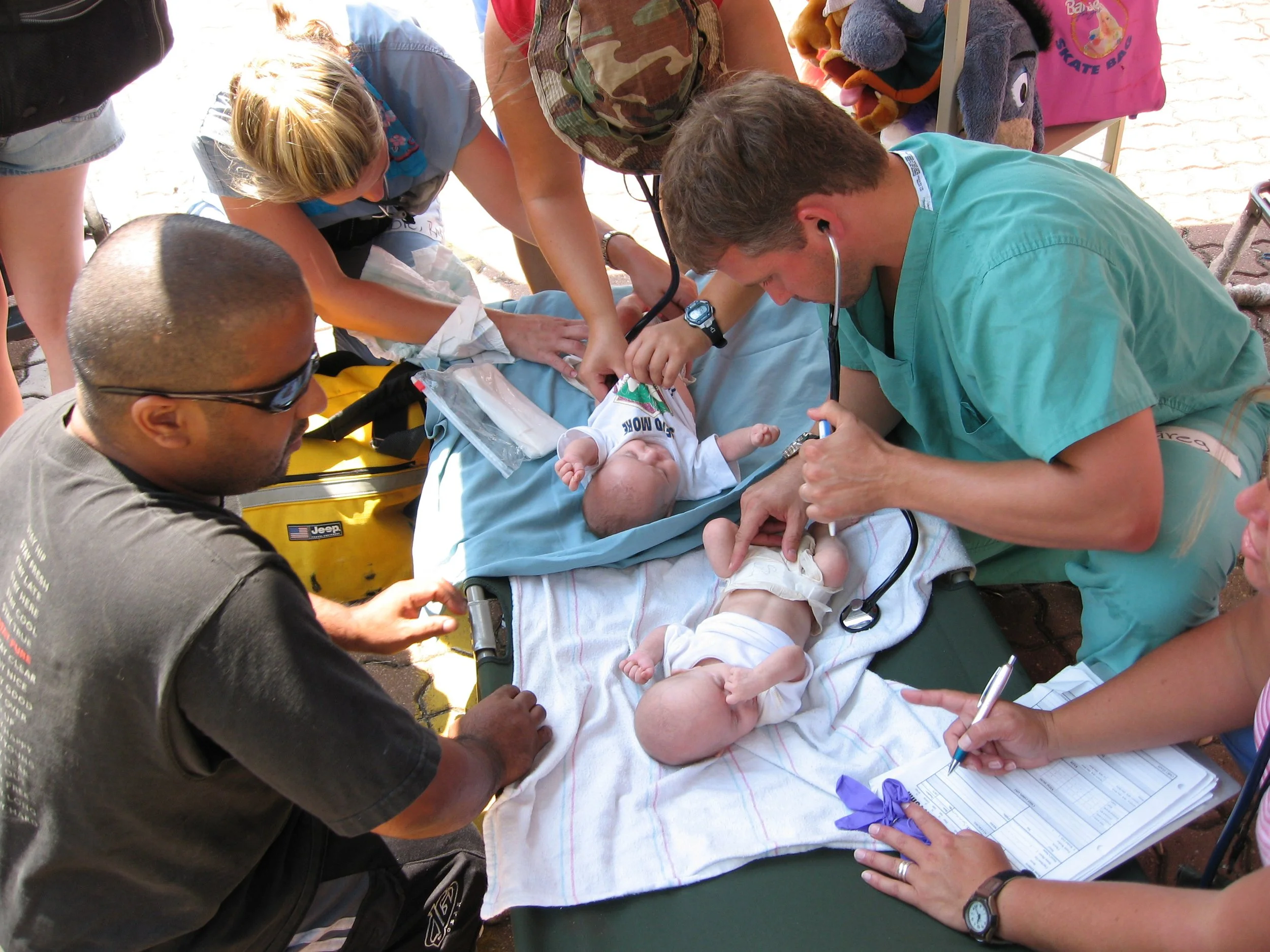
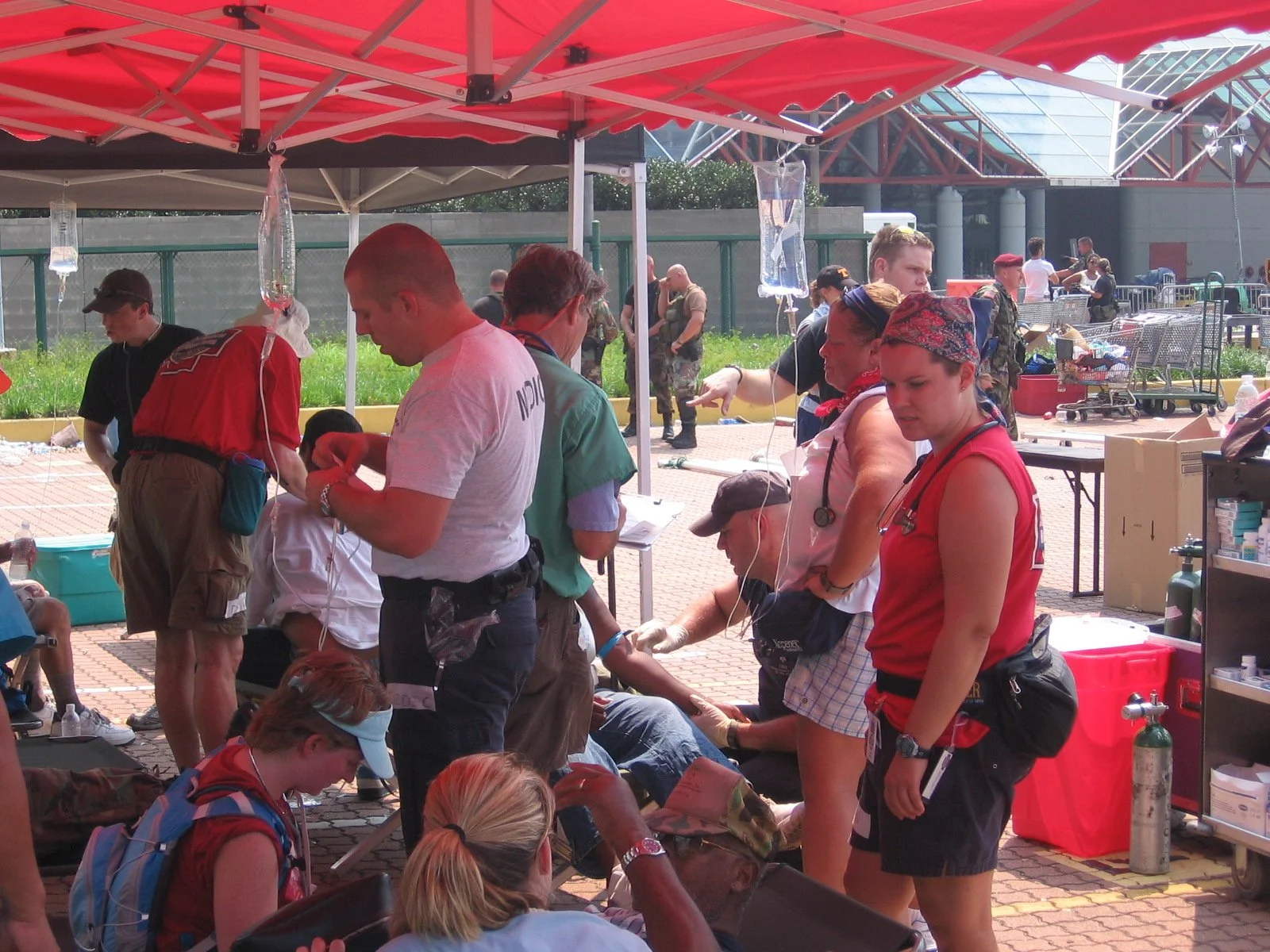
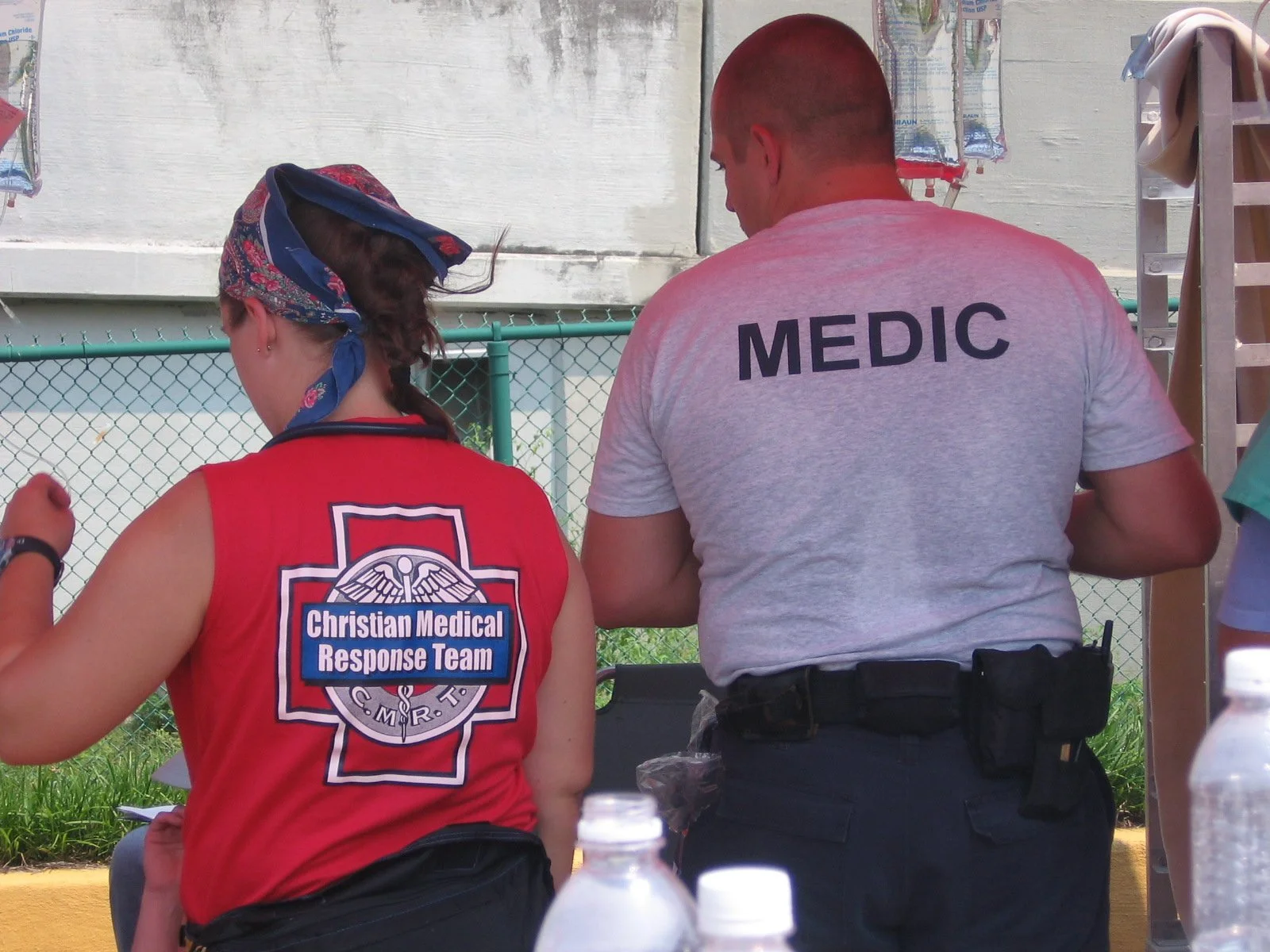

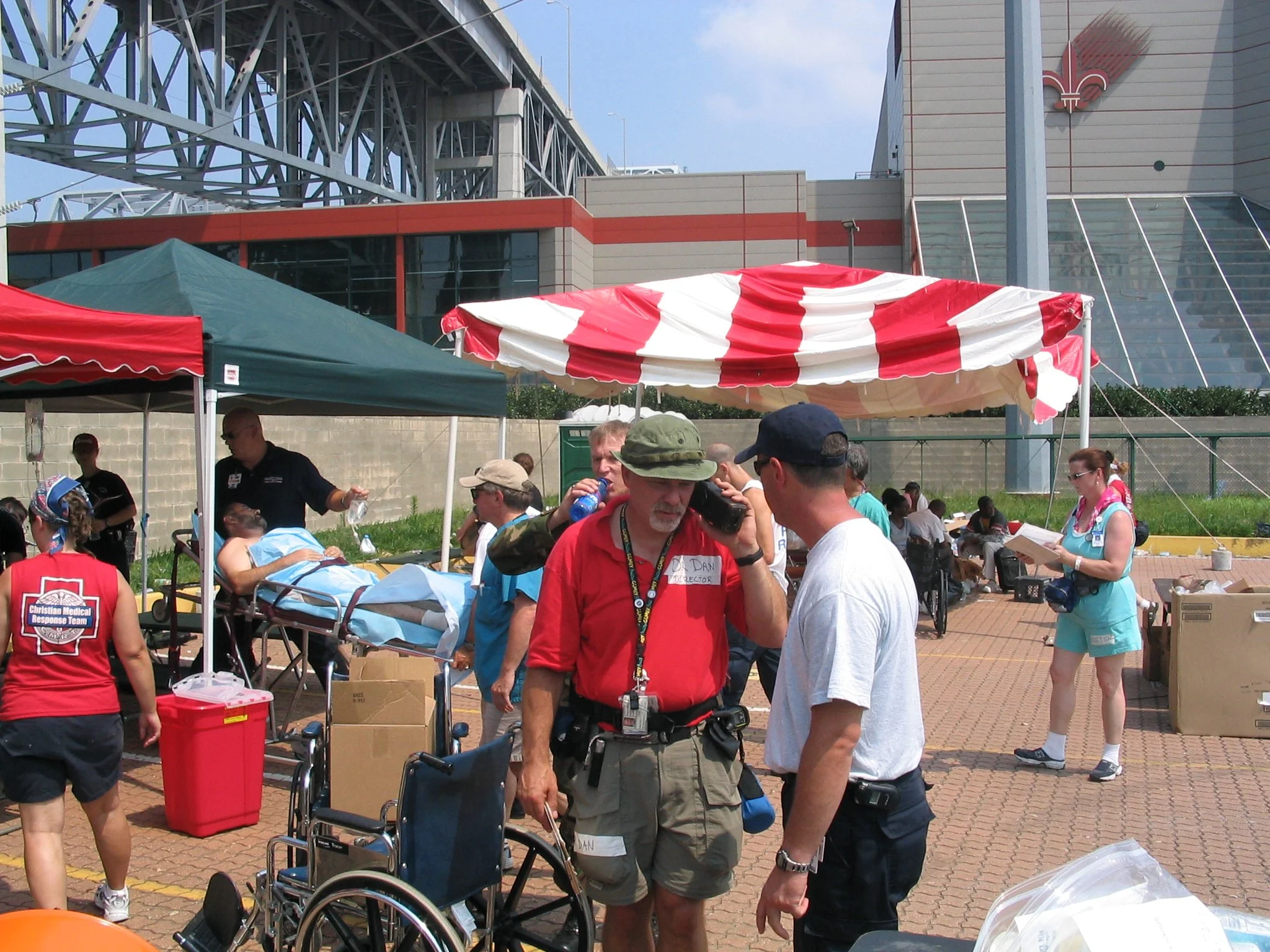
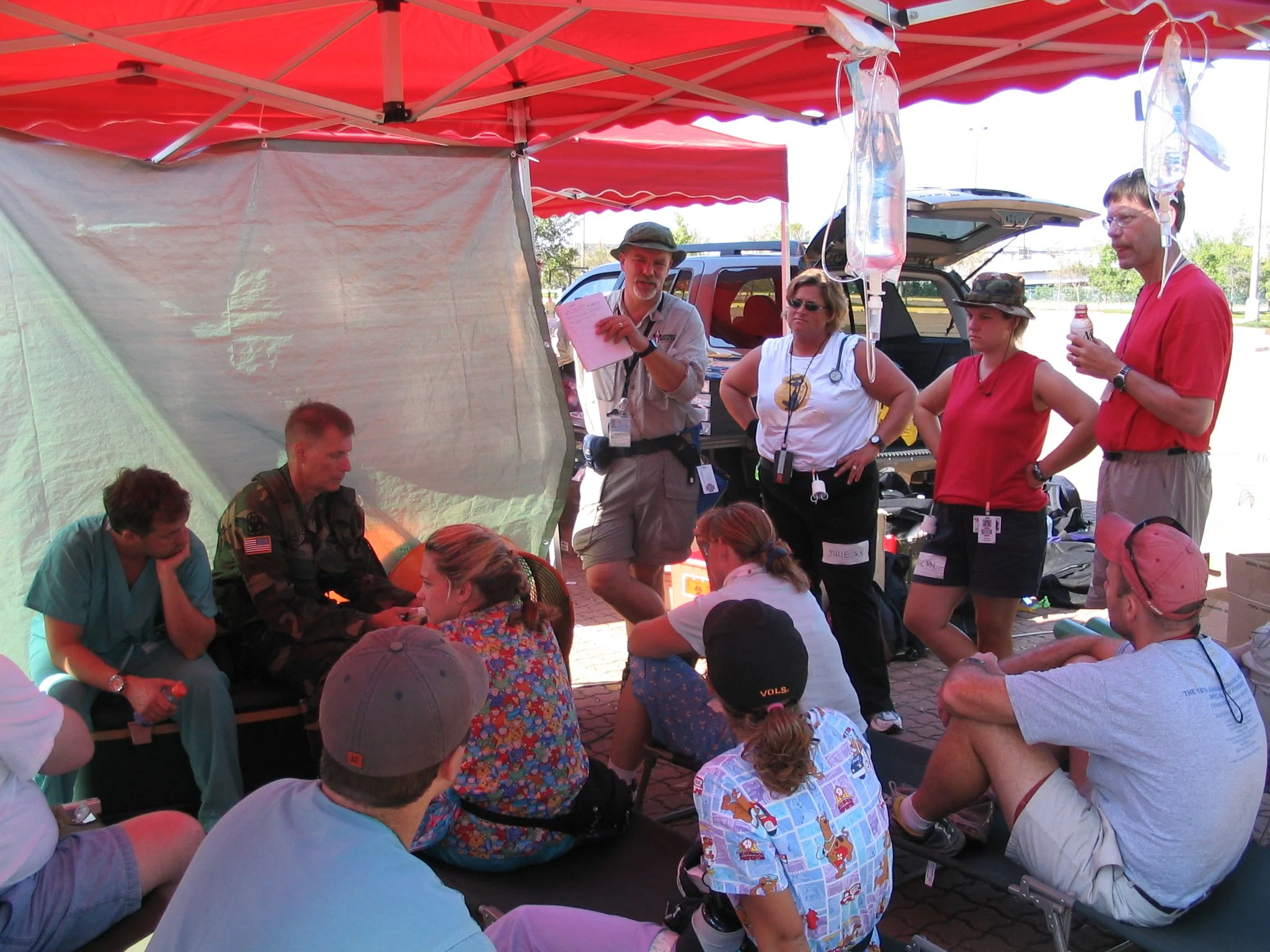
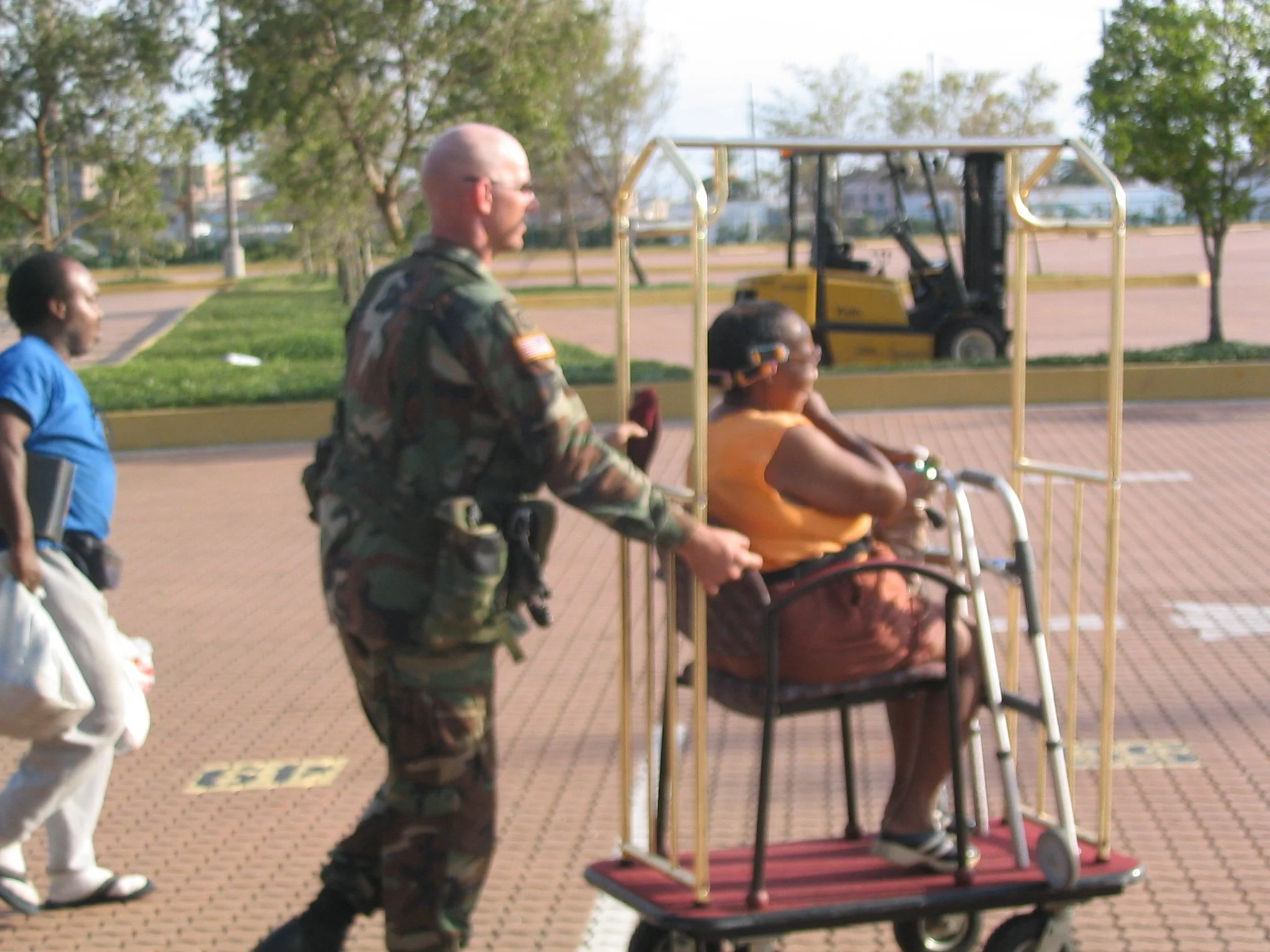
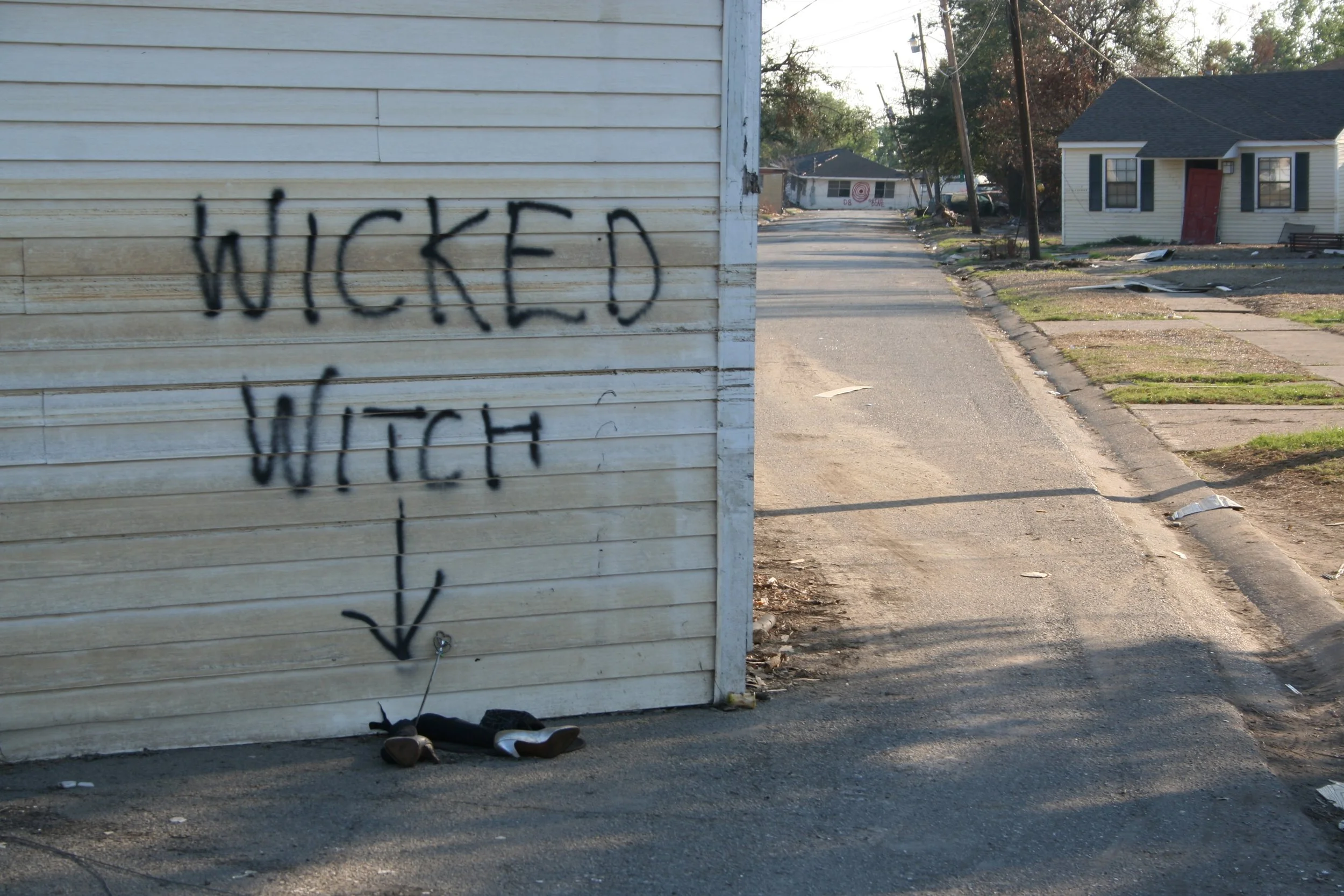
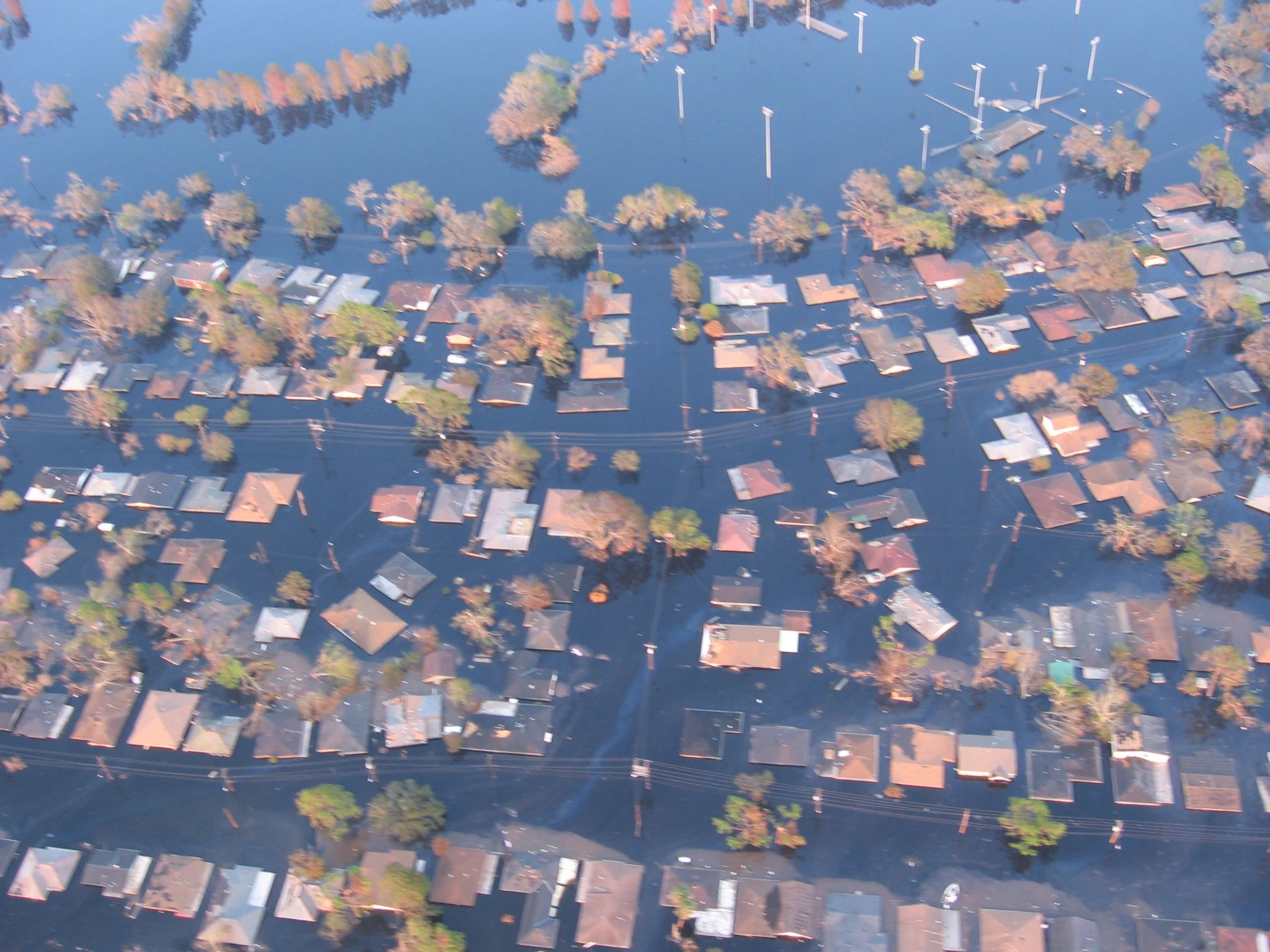

Reflections from the Medical Triage Unit at the New Orleans Convention Center
Twenty years ago, I stood outside the New Orleans Convention Center directing our medical triage unit, witnessing scenes that would forever change how I understand human resilience. The images are seared into memory—some I wish I could unsee, others I pray I never forget.
While Anderson Cooper was broadcasting his now-famous question to the world—"Why are there so many victims?"—I found myself asking something different entirely: "How is it that some of these people who have lost everything have not become victims?"
That question launched me on a decades-long quest to understand how people can not just survive, but actually thrive when resources are scarce and demands are crushing. The answer came through three unlikely heroes who changed my life forever.
Dr. Jullette Saussy: Power in Purpose
Dr. Jullette Saussy, Director of Emergency Medical Services, had lost her home to the storm. While most people in her situation would be focused on their own recovery, she was living in the back of an ambulance, tirelessly saving the lives of hundreds of people. Day after day, night after night, she worked with unwavering dedication.
Watching her, I realized that true power isn't about what you possess—it's about what possesses you. Purpose had become Dr. Saussy's home when her physical home was gone. She had chosen to see herself not as powerless in the face of loss, but as powerful in the face of need. She remains one of my lifetime heroes.
Sergeant Bailey: The Power of Choice in Crisis
Then there was Sergeant Bailey of the New Orleans Police. When the levee broke, water rapidly rose to the second story of his home, trapping him inside. Think about this moment: most of us would panic. Instead, Sergeant Bailey took several deep breaths, swam down two flights of stairs, through his front door, and up to grab his gutter and pull himself onto his roof.
For hours, he paced that roof, staring at the contaminated water below. Finally, he came to a profound conclusion: if he wanted to make a difference in the world and truly protect and serve like he'd sworn to do as a police officer, he was going to have to jump into that nasty water.
He swam about a mile before being rescued by a Vietnamese couple in a 17-foot aluminum boat. But here's the remarkable part: Sergeant Bailey and the couple then turned around and saved the lives of over 400 people. Four hundred souls who are alive today because one police officer and two refugees chose purpose over safety, service over self-preservation.
Augie: The Unexpected Hero
And then there was Augie. A man who lived alone, known for struggling with mental health issues. By all external measures, he had every reason to see himself as a victim. He'd lost everything—his home, his possessions, his stability. Yet he showed up at our medical triage unit eager to pitch in and help.
Augie didn't see himself as broken or powerless. He saw himself as having something to contribute. It wasn't about him—it was about what he could give to others. I did a TEDx talk about Augie because his story captures something profound: resilience isn't about having the perfect life or the strongest circumstances. It's about the choice you make when everything falls apart.
The Two Questions That Define Us
These three heroes—Dr. Saussy, Sergeant Bailey, and Augie—taught me that when the world goes sideways, we all face the same two fundamental questions.
Question 1: Will I choose to see myself as powerless or powerful?
This isn't about denying reality or toxic positivity. It's about recognizing that even when we can't control what happens to us, we always retain some measure of control over what happens within us and through us. Dr. Saussy lost her home but found her power in healing others. Sergeant Bailey was trapped by floodwater but chose to swim toward purpose. Augie had every reason to feel powerless but chose to act with agency.
Question 2: Will I choose to focus on what I can take or what I can give?
Even when we have nothing left materially, we can still give attention, presence, strength, or simply our humanity to others. All three of my heroes had lost so much, yet they gave what they had: expertise, courage, willingness to serve. In giving, they found meaning. In meaning, they found resilience.
The Resilience River
Picture resilience not as a dam that either holds or breaks, but as a river that finds its way around, over, or through obstacles. Dr. Saussy, Sergeant Bailey, and Augie weren't necessarily the strongest or most prepared people in New Orleans. But they were people who, when faced with unprecedented challenges, found a way to flow toward purpose rather than pool in despair.
They transformed not just their own experience of the disaster, but the experiences of hundreds of others. Their choices created ripples of hope in an ocean of devastation.
Twenty Years Forward
Today, as we mark this anniversary, I'm not asking you to remember Hurricane Katrina only as a story of devastation—though it was that. I'm asking you to remember it as a masterclass in human potential. When systems failed, infrastructure crumbled, and institutions struggled, ordinary people made extraordinary choices.
They chose power over powerlessness. They chose giving over taking. And in doing so, they became the infrastructure of hope that our community desperately needed.
The Questions for Today
As I write this twenty years later, our world faces new storms—some literal, many metaphorical. Economic uncertainty, social division, climate challenges, personal struggles that keep us awake at night. The external circumstances may change, but the internal choice points remain the same.
When your next challenge comes—and it will come—how will you answer?
Will you choose to see yourself as powerless or powerful?
Will you choose to focus on what you can take or what you can give?
Your answers won't just determine your own resilience. They'll ripple out to influence everyone in your orbit, just like Dr. Saussy, Sergeant Bailey, and Augie influenced me and countless others twenty years ago.
The storm revealed who they really were. Your next challenge will reveal who you really are.
Choose to be someone's hero. Choose Power and Purpose.
In memory of those lost in Hurricane Katrina, and in celebration of the everyday heroes who showed us what human resilience looks like when it matters most.

